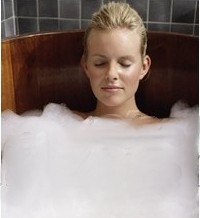

Why is soap used?
Our skin gets enveloped in layers of dust, grime and dead cells in which bacteria and germs thrive well, also giving it an unclean dull appearance. To avoid this,soap is used in conjunction with water to clean the skin. The function of water is to wet the skin. Now the soap can be worked into a lather which disperses dirt and grease, enabling it to be washed with additional splashes of water.
Soap-flip side
While washing away the dirt, soap has a drying effect on the skin. So excessive and frequent use of soap should be avoided. It can strip the skin of its protective coating and make it vulnerable to infections. Again, if after using a soap, the skin gets irritated or appears shiny, it is not suitable for you.
Types of soaps
We have toilet soaps, scrubbing soaps, laundry soaps, carpet soaps, medicated soaps, aroma therapy ‘body bars’ and several more soaps flooding the market. There are also special soaps for babies, cleansing gels and face washes too. Body soaps are available for our canine friends too! The present craze for herbal products has been extended towards soaps also. Soaps with Neem, lavender, sandalwood and other essential oils are also available. New additions are soaps with fruit and flower essence and fragrance – peach, apple raspberry, cherry, aloe vera , almond etc.
Toilet soaps are also available as bottled body wash. Liquid soaps are also widely used for washing hands, especially at hotels, clinics, airports and other public places. Medicated soaps are used for skin problems: sulphur soap is used for scabies, naphthol soap for psoriasis and soap with carbolic acid for antiseptic effects. Glycerin soaps being mild are mostly prescribed for those with dry skin.
Points to remember while selecting a soap:
* Choose a soap which suits your skin type.
* The soap should have a mild perfume or color. Strong perfumes might be used to mask odor of substandard fat. Again, dark color might be used to conceal the dirty color of other harmful ingredients.
* If a soap causes allergic reaction, then discontinue its use immediately.
* Soap with a good percentage of olive oil is good for baby’s skin.
* Soap with a high percentage of moisturizer is good for winter, in summer, a lemon or lime-based soap is more refreshing.
See also: Baths/ Shampooing your hair/ Body Odor /About deodorants and anti-perspirants
use camper soap they have special shampoo and conditioner too! and it 's good for the environment cost more then normal stuff but it's natural meaning the bugs won't be as bad smell the chemicals they put in the stuff we normally by!
ReplyDeleteThe soap I’ve found to be best for my face is Dead Sea Mud soap from Adovia. It is expensive, but the bars last a long time…and what price wouldn’t you pay for a safer, better product?
ReplyDelete